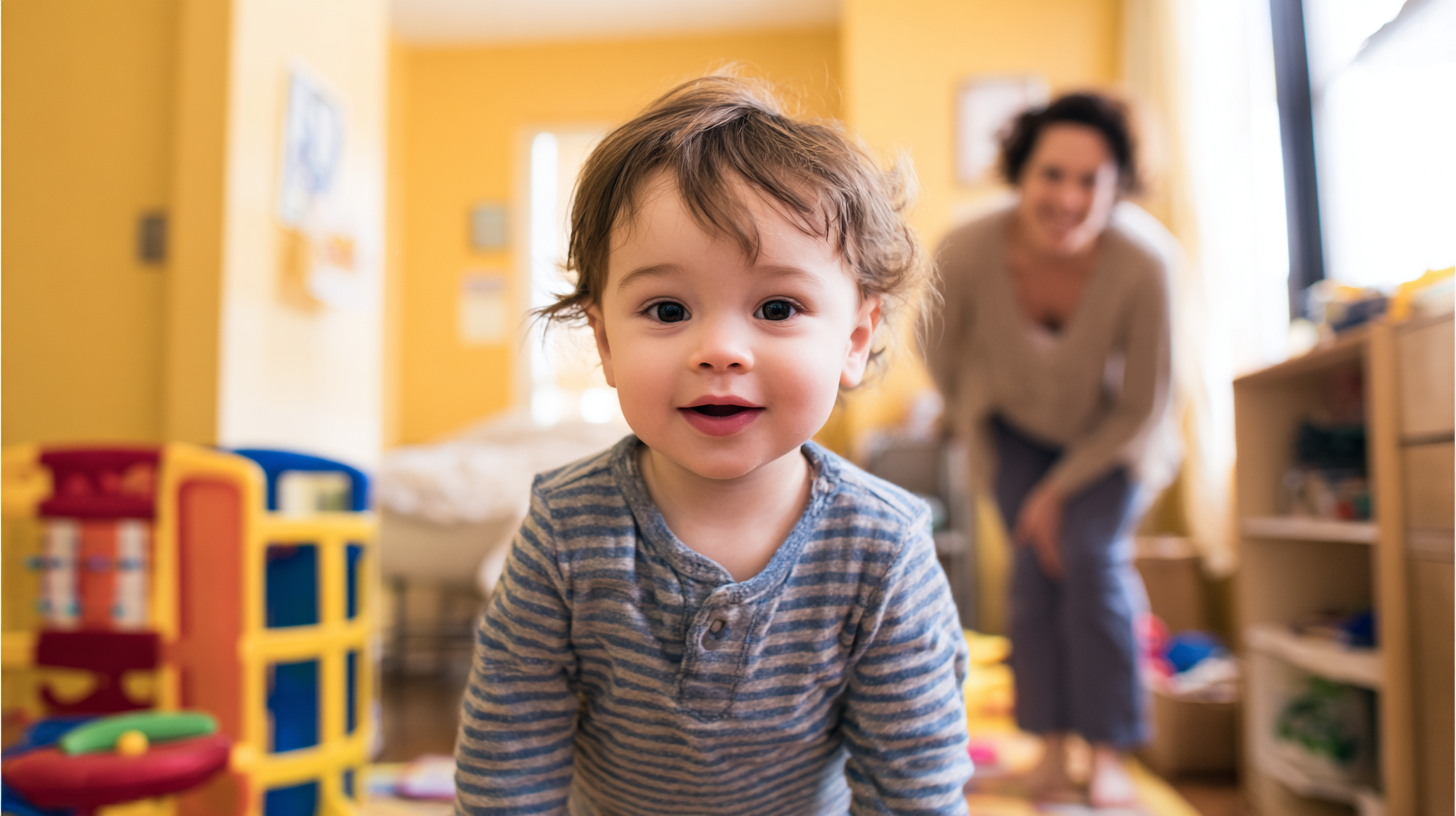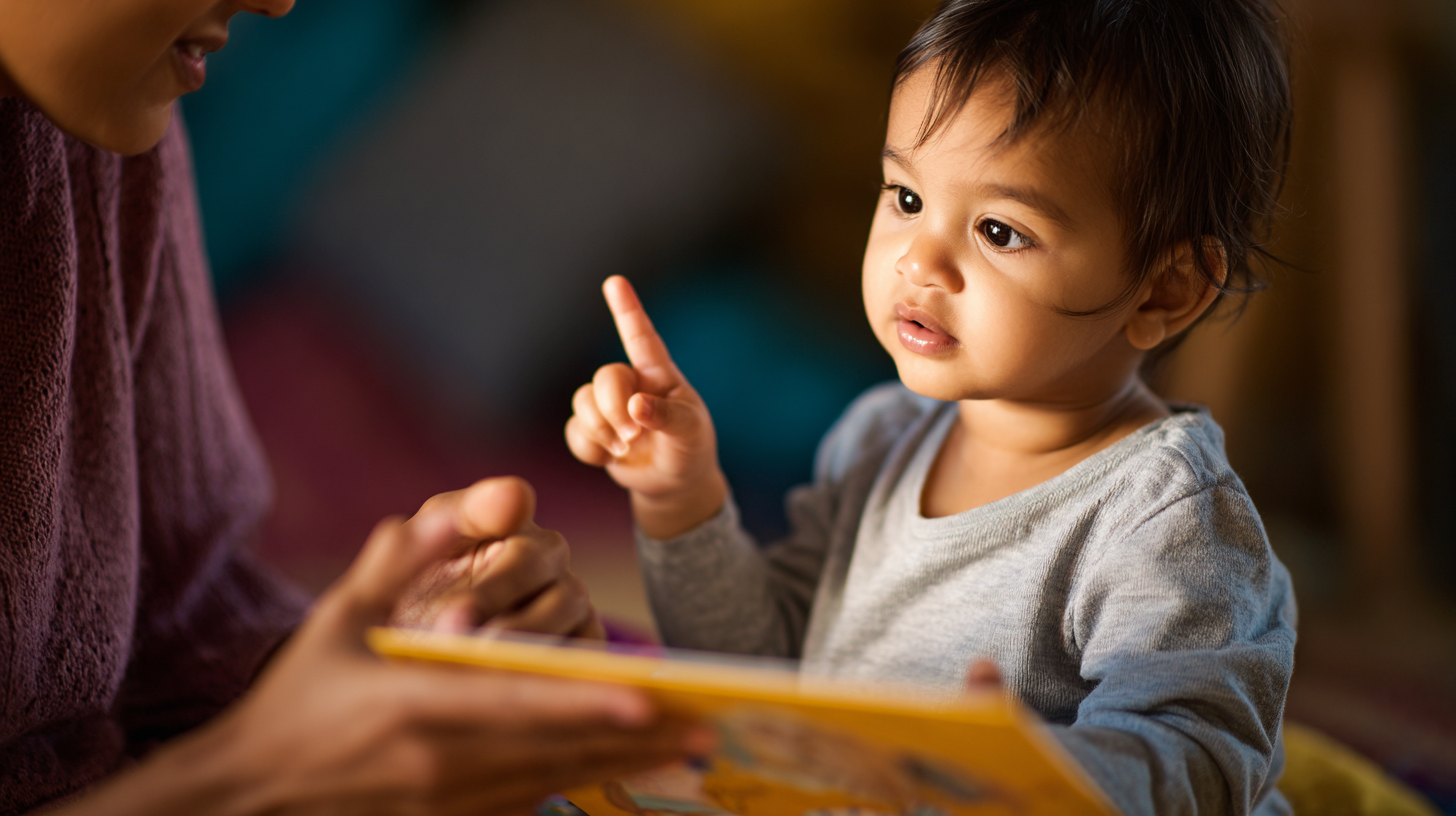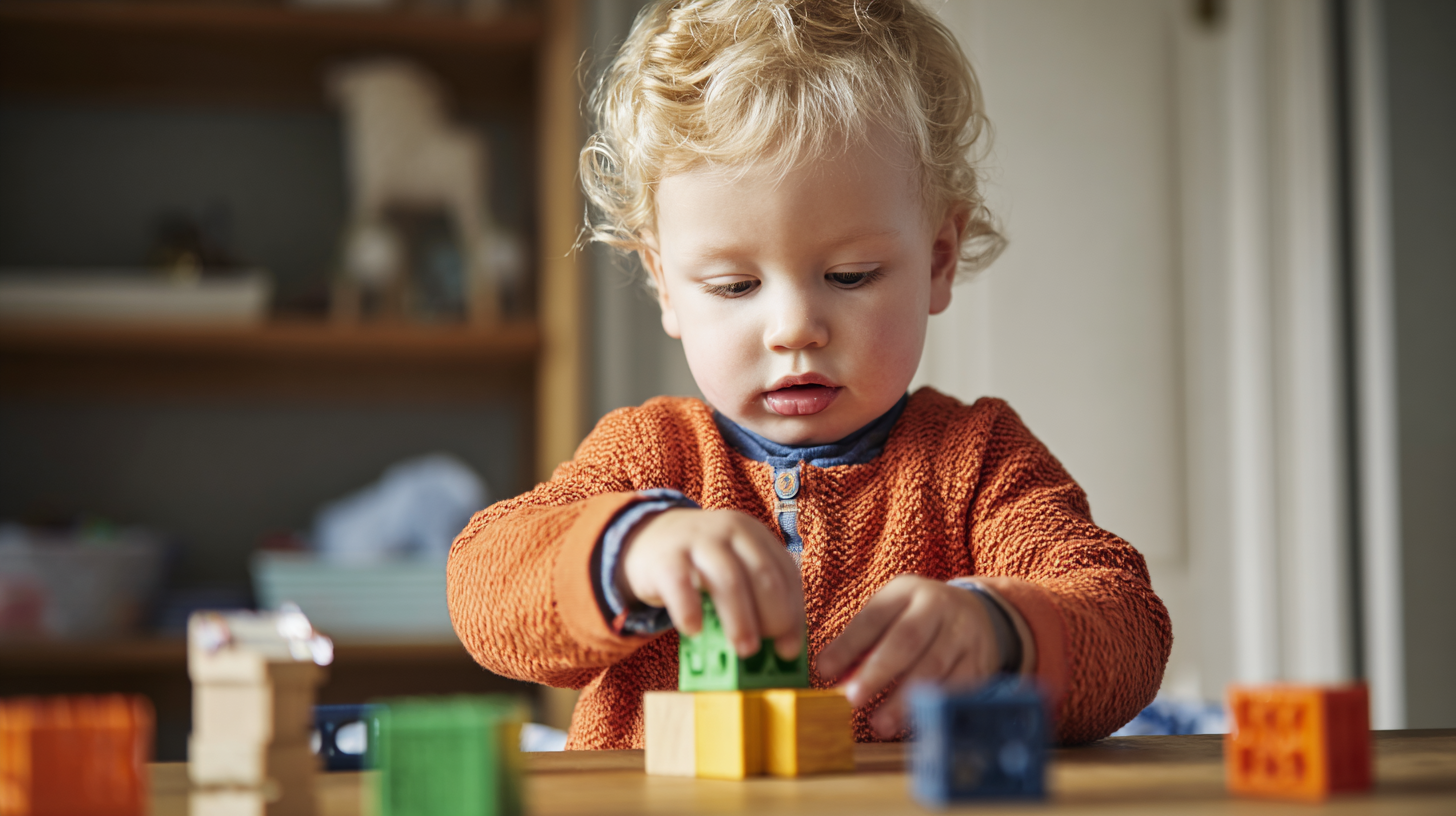How Old is 18-Months: Milestones, What to Expect & Support

When parents ask, “how old is 18 months,” they’re referring to a child who is 1.5 years old – a significant milestone in toddler development.
This age marks an exciting period when children change from babies into active, curious toddlers who are beginning to figure out their world with greater independence and purpose.
The 18-month mark represents a major developmental stage where children show remarkable growth across all areas of development.
During this period, toddlers develop new social skills, expand their language abilities, and gain physical coordination that opens up new possibilities.
Understanding what to expect at this age helps parents support their child’s natural development and recognize the incredible progress happening each day.
How Old Is 18 Months? Key Developmental Milestones
Eighteen months equals exactly one and a half years of age, positioning toddlers right in the middle of their second year of life.
This timeframe is considered a critical period in child development because it bridges the gap between infancy and early childhood.
This developmental stage is characterized by rapid changes in how children think, move, and interact with others. Children become more independent while still needing guidance and support from their caregivers.
Understanding this timeline helps parents set appropriate expectations and celebrate the unique achievements that come with being 18 months old.
1. Social and Emotional Milestones at 18 Months Old

At 18 months old, toddlers begin showing more complex social and emotional behaviors that reflect their growing understanding of relationships and feelings.
They start to move away from their parents to explore, but frequently check back for reassurance. Children this age often show affection to familiar people, dolls, or stuffed animals through hugs, kisses, or gentle patting.
They’re beginning to understand that others have feelings and may offer comfort when someone seems sad.
Toddlers at 18 months also express new emotions more clearly, including excitement, frustration, and possessiveness.
2. Language and Communication Development

By 18 months old, most toddlers have a vocabulary of at least 10 words, though many know significantly more. These words typically include names for important people, favorite foods, and everyday objects.
Children this age can usually understand and follow one-step directions like “give me the ball” or “come here.”
Toddlers use both gestures and words to communicate their needs and interests, often pointing to objects they want while saying single words or simple phrases.
Communication at this age involves more than just speaking, as children show they understand much more than they can express through words.
3. Cognitive Development Milestones

Cognitive development at 18 months old involves how children think, learn, and solve problems. Toddlers this age play with toys in simple but imaginative ways, such as pushing a toy car around or pretending to feed a doll.
Children at 18 months know what everyday objects are used for and can demonstrate their understanding by pretending to brush their hair with a brush or hold a phone to their ear.
Following simple commands and identifying pictures in books becomes easier for 18-month-olds.
4. Physical Development and Movement Skills

Physical development at 18 months old is marked by increasing coordination and independence in movement.
Most toddlers walk independently by this age, and many are beginning to run, though they may still look unsteady.
Fine motor skills also improve significantly during this period, as children can drink from a cup without a lid and learn to use a spoon to feed themselves.
Self-care skills begin emerging as toddlers help with dressing and undressing, giving them a sense of accomplishment and growing independence.
Supporting Your 18-Month-Old: Tips & Activities
Supporting your 18-month-old’s growth doesn’t require expensive toys or structured lessons. It happens through everyday interactions and play.
- Encourage Pretend Play: Provide child-safe household items like empty boxes, wooden spoons, and containers for imaginative play.
- Read and Talk Daily: Share books, describe daily activities, and respond to your child’s communication attempts throughout the day.
- Create Safe Exploration Spaces: Set up areas where your toddler can safely climb, explore, and practice new physical skills.
- Offer Problem-Solving Toys: Simple puzzles, stacking blocks, and shape sorters encourage cognitive development and hand-eye coordination.
- Name Objects and Actions: Label items, colors, and activities during daily routines like getting dressed or preparing meals. This constant exposure to new vocabulary helps expand your child’s understanding and speaking abilities.
- Practice Self-Care Skills: Allow extra time for your toddler to help with dressing, feeding, and simple tasks. These opportunities build independence and fine motor skills while boosting their confidence and self-esteem.
Sleep and Feeding at 18 Months

At 18 months old, toddlers typically need 12-14 hours of sleep per 24-hour period, including both nighttime sleep and daytime naps.
Most children this age take one nap during the day, usually lasting 1-3 hours, while sleeping 10-12 hours at night.
Establishing consistent sleep routines helps support healthy sleep patterns and overall development.
Self-feeding skills develop significantly during this period as toddlers gain independence during mealtimes.
Most 18-month-olds can feed themselves using their fingers or utensils, though spills and messes are still common. They can typically drink from a cup without a lid, showing improved hand-eye coordination and motor control.
Encouraging self-feeding supports both fine motor development and independence, even when meals take longer or create more cleanup.
When to Consult Your Pediatrician About 18-Month Milestones
While every child develops at their own pace, certain signs may indicate a need for professional guidance and support.
| Area of Development | Signs to Watch For | When to Seek Help |
|---|---|---|
| Physical Development | Not walking independently, frequent falls, difficulty climbing | If a child isn’t walking by 18 months or shows significant coordination concerns |
| Language Development | Using fewer than 10 words, not responding to name, no gestures | If a child shows limited communication attempts or loses previously learned words |
| Social Development | Not showing affection, avoiding eye contact, no interest in other people | If the child seems withdrawn or doesn’t engage with familiar caregivers |
| Cognitive Development | Not understanding simple commands, no pretend play, and losing previously learned skills | If a child shows regression in abilities or significant delays in learning |
| Emotional Development | Extreme behaviors, no emotional responses, constant distress | If a child shows concerning behavioral patterns or seems unable to be comforted |
Understanding these warning signs helps parents make informed decisions about when to seek pediatric advice for their toddler’s development.
Early Intervention Benefits
The importance of early intervention cannot be overstated when developmental concerns arise. Regular developmental screenings help identify any areas where a child might benefit from additional support.
Many communities offer free early intervention services for young children who need extra help reaching developmental milestones.
Using milestone checklists and tracker apps can help parents monitor their child’s progress and identify areas of strength or concern.
Conclusion
Understanding what it means to be 18 months old helps parents appreciate this remarkable stage of development.
Every child develops at their own pace, making it important for parents to focus on progress rather than comparing their toddler to others.
The 18-month stage is filled with findings, challenges, and achievements that deserve celebration. Engaging in daily activities that support development.
When concerns arise, seeking professional guidance ensures that children receive any additional support they might need.
Share your 18-month-old’s favorite activities and milestones in the comments below – your experiences can help other parents navigate this exciting developmental trip.
Frequently Asked Questions (FAQs)
What Does 18 Months Mean In Years?
Eighteen months equals exactly 1.5 years or one year and six months of age.
Is It Normal For My 18-Month-Old To Have Tantrums?
Yes, tantrums are completely normal at 18 months as toddlers learn to express emotions and cope with frustration while their language skills are still developing.
How Can I Help My Toddler Learn New Words?
Talk throughout daily activities, read books together, repeat and expand on words your child says, and respond positively to their communication attempts.






